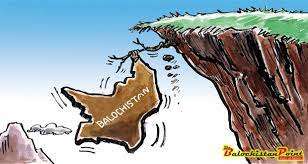Nexus of Terror: a catalyst for decisive action
The year 2023 “Year of Political and Economic Turbulence” will be carved in the country’s history as a period marked not only by political and economic turbulence but also by a resurgence of terrorism. The recent attacks in Dera Ismail Khan, targeting security personnel and resulting in high casualties, serve as a grim reminder of the formidable threat posed by militant networks.
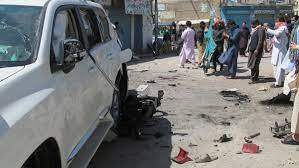
One of the most concerning aspects of this burgeoning nexus is the reported swelling of IS-K ranks in Afghanistan since the Taliban takeover. This influx, fueled by fighters drawn from transnational terrorist organizations, amplifies the threat beyond Afghanistan’s borders, potentially making Pakistan a battleground for global terrorism.
Shifting Sands of Extremism:
Amidst political instability, economic decline, and rising uncertainty, the fertile ground for extremism has been laid. The recent attacks expose the gaps in Pakistan’s counterterrorism strategy, highlighting the urgent need for a comprehensive and sustainable approach to eliminate these threats.
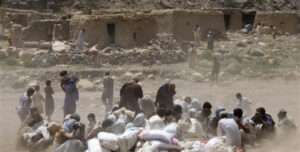
Emerging Nexus Between Various Extremist Groups
The situation is particularly alarming due to the emerging nexus between various extremist groups. Reports suggest a growing collaboration between TTP factions and IS-K, potentially joined by elements of Baloch separatist movements. This coalition, if confirmed, poses a significant challenge, significantly increasing the complexity of the security landscape.
Rethinking National Security:
A critical step towards achieving this objective is a thorough review and revision of the national security policy. This review must identify and address the shortcomings that have allowed the resurgence of terrorism.
Shifting Targets, Rising Costs:
A more holistic and proactive strategy is essential, encompassing not only military operations but also addressing the root causes of radicalization and fostering social and economic development in vulnerable areas. The recent attacks in D.I. Khan highlight the shift in militant tactics.
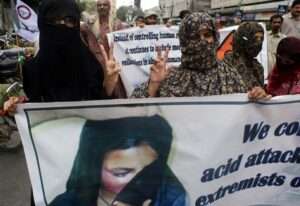
Unlike the past, where civilian populations were targeted, the current focus is on inflicting maximum damage on security personnel. This shift has resulted in a tragic increase in casualties among our brave soldiers and police officers.
No Room for Complacency:
In the face of this escalating threat, complacency is not an option. The caretaker government and the security establishment must act decisively to address the militant menace. Targeted operations in the region where recent attacks have been concentrated are crucial to neutralize or capture these elements before they can inflict further harm.
Statistics in this regard
Statistics paint a grim picture. According to the Pakistan Institute for Conflict and Security Studies, over 600 attacks have been recorded in 2023, resulting in nearly 900 fatalities. This represents an alarming 81% increase in attacks compared to 2022.
A Multi-Pronged Response:
2023 has been a stark reminder of the dangers of terrorism. Countering the TTP-IS-K nexus necessitates a resolute and multi-faceted response. we must:
Review its national security policy:
Identify and address weaknesses, and prioritize a holistic approach.
Implement targeted operations:
Neutralize and capture elements operating in vulnerable regions.
Engage with regional stakeholders:
Collaborate with neighbors to prevent militant safe havens.
Strengthen intelligence gathering:
Improve early warning systems and enhance threat assessment capabilities.
Secure borders effectively:
Control the cross-border movement and prevent infiltration of militants.
Address root causes of radicalization:
Tackle poverty, lack of education, and social injustices.
Foster community engagement:
Promote tolerance and interfaith harmony to counter extremist narratives.
Strengthen civil society:
Empower communities to resist extremism and advocate for peace.
Safeguarding Democracy and the Future:
The lives of our citizens and the future of the nation depend on our collective resolve and decisive action. The fight against terrorism requires
- A multi-pronged approach
- Military operations are essential
- They must be complemented by
- Robust intelligence gathering
- Effective border security
- And sustained efforts
- To address the socioeconomic factors that contribute to radicalization.
ADDITIONAL SUGGESTIONS
- Strengthening community engagement
- Fostering a culture of tolerance
- Interfaith harmony is crucial in countering the extremist narrative.
Challenges in Engagement with Afghan Taliban
Proactive measures must be implemented to prevent these groups from finding safe havens in Afghanistan. While engaging with the Afghan Taliban may be challenging, it is imperative to maintain open channels and exert pressure to ensure they do not provide sanctuary to terrorists.
The upcoming elections serve as another crucial reason for immediate action. Terrorists cannot be allowed to disrupt the democratic process and undermine the will of the people.
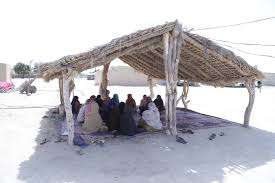
Conclusion
2023, Pakistan’s year of political and economic turmoil has been overshadowed by a chilling resurgence of terrorism. The recent D.I. Khan attacks expose gaps in counterterrorism strategy and the alarming emergence of a nexus between militant groups, including TTP, IS-K, and potential separatists. In addition to that incidents like the extra-judicial murder of Balach Molabukhsh raises Several critical questions.
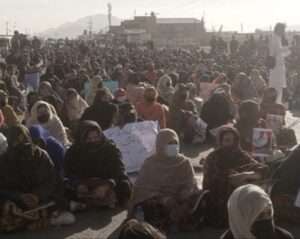
This requires a swift and multifaceted response: revising national security policy, targeting operations, regional collaboration, and addressing root causes like poverty and radicalization. The future of Pakistan’s democracy and safety hinges on decisive action to eliminate this evolving threat.


